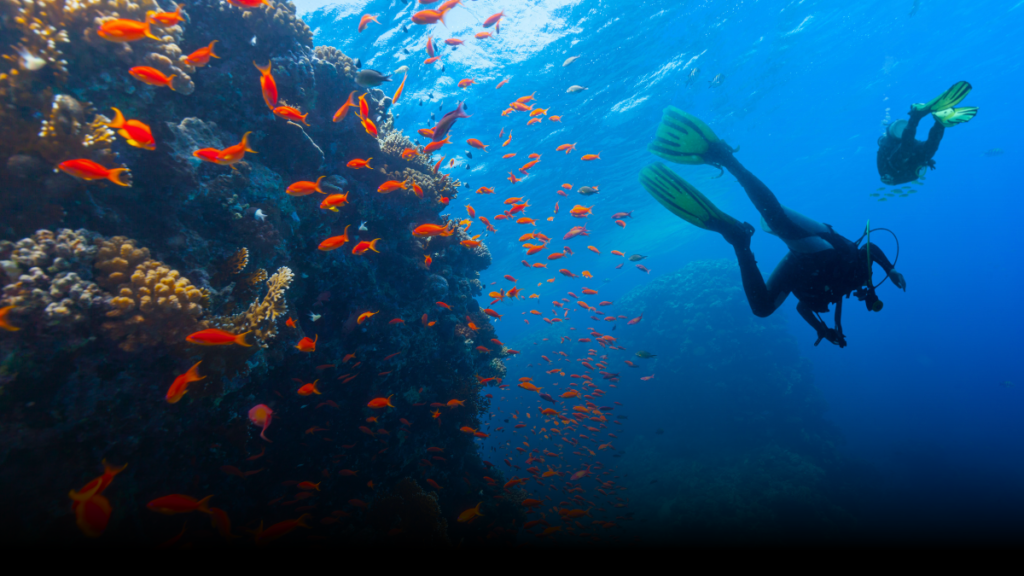Table of Contents
Introduction: Why Do Divers Shower After Each Dive
If you’ve ever watched competitive diving at the Olympics or other major events, you may have noticed divers immediately stepping into a shower after each dive. This might seem unusual since they just emerged from the water. So, why do divers shower after each dive? The answer lies in a combination of science, injury prevention, and performance enhancement.
In this article, we’ll break down the key reasons behind this practice, including how temperature regulation, muscle relaxation, and injury prevention play a crucial role in a diver’s routine. Why Do Divers Shower After Each Dive
1. Maintaining Muscle Temperature
One of the primary reasons divers shower after each dive is to maintain their body temperature. Diving pools are kept at a cool temperature (typically around 26°C or 79°F) to reduce bacterial growth and keep the water clean. However, this temperature can feel cold to divers who perform multiple dives during a competition.
Showering with warm water helps: Why Do Divers Shower After Each Dive
- Prevent muscle stiffness – Cold water can cause muscles to tighten, which may negatively impact flexibility.
- Keep the body relaxed – Warm water soothes the muscles and helps divers maintain fluid movements.
- Avoid performance decline – A sudden drop in temperature can lead to a loss of control over fine motor skills, affecting the precision needed for complex dives.
2. Preventing Muscle Cramps and Injuries
Diving requires a high level of flexibility, balance, and body control. The impact of landing in the water at high speeds can strain muscles and joints. Warm showers between dives help: Why Do Divers Shower After Each Dive
✅ Relax muscles and prevent cramps
✅ Reduce the risk of injury caused by tight or cold muscles
✅ Ensure divers stay in peak physical condition throughout the competition
A muscle cramp at the wrong moment could be disastrous, leading to a failed dive or even an injury.
3. Avoiding Sudden Temperature Changes
When divers move between air, water, and dry areas, their bodies experience constant temperature changes. For example: Why Do Divers Shower After Each Dive
- Air temperature at competition venues is often cooler due to air conditioning.
- Water temperature in the pool is colder than the human body’s natural warmth.
- Diving boards and platforms are dry and exposed to the surrounding air.
Switching between these environments can cause discomfort or even mild shock to the system. Warm showers help regulate body temperature, allowing divers to stay comfortable and focused.
4. Preparing for the Next Dive
Diving is a sport that demands perfect execution and mental focus. Taking a shower in between dives helps divers: Why Do Divers Shower After Each Dive
🎯 Stay warm and limber for the next dive
🎯 Mentally reset and stay in the competition mindset
🎯 Relax and reduce stress levels
By maintaining a warm and flexible body, divers can perform consistently well throughout a competition.
5. Psychological and Routine Benefits

Athletes rely on rituals and routines to stay in the zone. Just like how basketball players have pre-game warmups or swimmers have pre-race stretches, divers use showers as a mental reset tool. Why Do Divers Shower After Each Dive
This routine provides:
✔ Consistency – A familiar habit that keeps them calm and focused.
✔ Stress relief – Warm showers relax the body and mind.
✔ Improved performance – A small but effective way to maintain peak condition.
For many divers, showering between dives is just as important as their physical training. Why Do Divers Shower After Each Dive
FAQs About Divers Showering After Each Dive
1. Do divers shower for hygiene purposes?
No, the primary reason divers shower is not for hygiene but to maintain body temperature, prevent cramps, and stay limber.
2. What temperature is the shower water?
The water is usually warm, around 32–35°C (89–95°F), to help muscles stay relaxed.
3. Why do divers use hot tubs after diving?
Some competitions have hot tubs near the diving platforms, which serve the same purpose as showers – keeping divers warm and preventing stiffness.
4. Is the pool too cold for divers?
While pools are not extremely cold, they are cooler than body temperature, which can cause muscles to tighten.
5. Do all divers follow this practice?
Yes, most professional and Olympic divers use showers between dives to maintain their performance levels.
Final Thoughts
The next time you watch a diving competition, you’ll know why divers head straight to the shower after each dive. This simple but essential practice helps them stay warm, prevent injuries, and maintain peak performance.
💡 Are you a diving enthusiast? Let us know your thoughts in the comments!
📌 Want to stay updated on more sports insights? Subscribe to our newsletter for expert breakdowns and behind-the-scenes stories.




